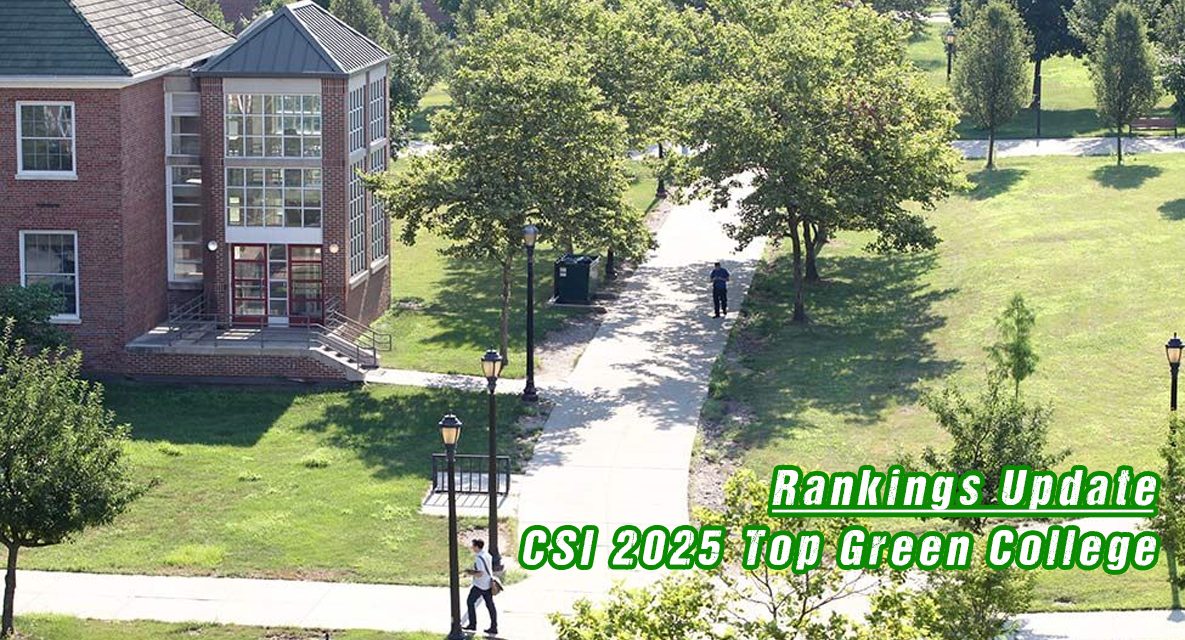For the fourth consecutive year, the College of Staten Island has been cited by The Princeton Review as one of the nation’s Top Green Colleges. The Princeton Review analyzes several “Green Ratings” to make up its comprehensive list with CSI scoring high marks to land among the nation’s best.
“We are deeply honored to be recognized as a Top Green College by The Princeton Review for the fourth consecutive year,” said Dr. Timothy G. Lynch, President of the College of Staten Island. “This distinction underscores our continued dedication to sustainability and environmental leadership, which are integral to our mission. It reflects the collective efforts of our students, faculty, and staff to foster a greener, more sustainable future. both on our campus and within the wider community.”
“It is an honor to be recognized again this year,” said Nora Santiago, Sustainability Program Manager in the Office of Sustainable Community Planning. “Every year, we try to make better choices to make CSI greener. The steps we take are making a big difference in the long run and our students are able to participate in various sustainability activities during their time at CSI.”
Based primarily on surveys conducted by The Princeton Review in 2023–2024, and analyses of more than 25 survey data points, the Guide to Green Colleges selected a total of 511 schools to recognize this year. The schools were selected for their exceptional programs, policies, and practices related to sustainability and the environment. The company also surveyed students attending the colleges about their “green” campus experiences. The study produces a Green Rating score for the schools on a scale of 60 to 99. The College of Staten Island received a grade of 85.
The announcement by The Princeton Review comes on the heels of another successful year in sustainability, one that saw the College amplify its Greenhouse programming and initiatives, participation in national Daylight Hour and Sunflower Day, and teaching students sustainable patterns of environmental development, including the art of making Seed Balls, an exercise dating back to the 1970s when the Green Guerillas were transforming vacant lots of land in NYC into sustainable gardens.
“I’m very proud of our workshops and events,” said Santiago. “Seeing the increased participation by students, faculty, and staff is encouraging. And seeing the smile on their faces when they take home something they planted or propagated is priceless.”
Academically, CSI has also been a trailblazer in Offshore Wind education and workforce development, with Staten Island particularly a central hub to New York City’s expansion of Offshore Wind energy.
CSI continues to anchor several sustainability initiatives on campus, including an initiative for reduced plastic on campus. Over the summer, new water filling stations were installed on campus in many of CSI’s academic buildings.
“Educating students about the importance of reusable bottles is critical not just for the environment but also for their wallet,” said Santiago. “Right away, we can see the positive impact, with more than 5,000 bottles refilled this month alone.”
The College is also continuing to improve waste diversion by adding waste-sorting stations that will help properly dispose of waste.
For more information on sustainability efforts at the College of Staten Island, visit their Website. For the complete list of The Princeton Review’s Guide to Green Colleges, see their Website.















